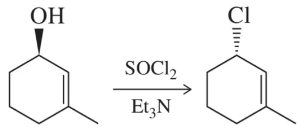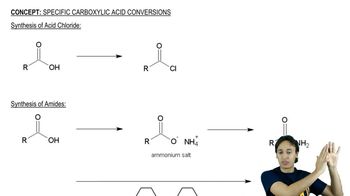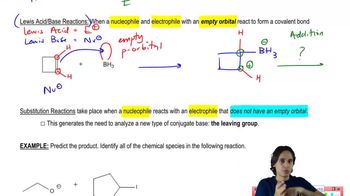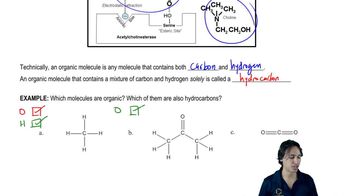Predict the major products (including stereochemistry) when cis-3-methylcyclohexanol reacts with the following reagents.
(a) PBr3
(b) SOCl2
(c) Lucas reagent

 Verified step by step guidance
Verified step by step guidance Verified video answer for a similar problem:
Verified video answer for a similar problem:



 4:30m
4:30mMaster Comparing and contrasting the Alcohol Conversions. with a bite sized video explanation from Johnny
Start learning